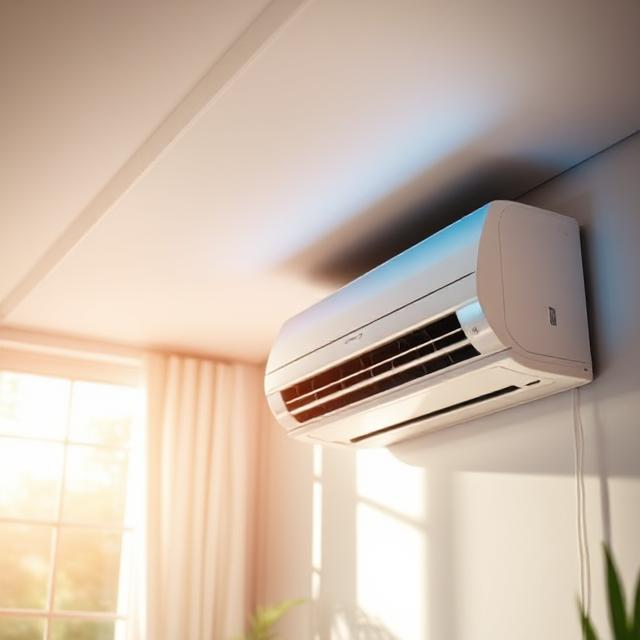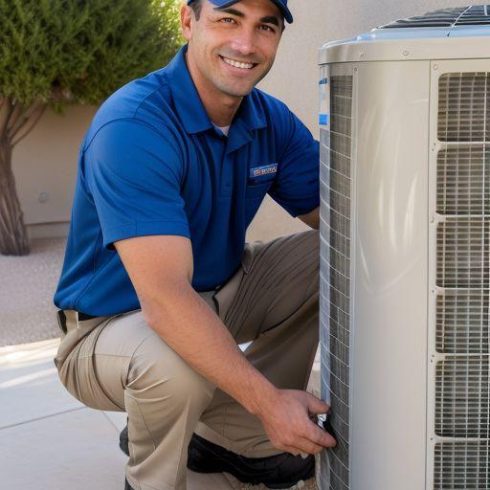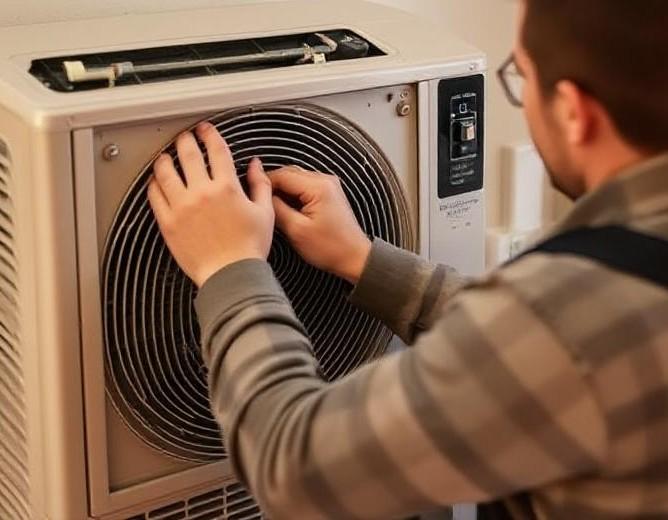Why Is HVAC Work So Expensive?
Introduction
When it comes to maintaining a comfortable indoor environment, HVAC (Heating, Ventilation, and Air Conditioning) systems play a pivotal role. However, one question looms large for many homeowners: Why is HVAC work so expensive? The costs associated with installation, repairs, and maintenance can often leave you scratching your head. In this article, we’ll dive deep into the various factors that contribute to the high expenses of HVAC services, shedding light on everything from labor costs to equipment quality. Whether you're considering a new system or need repairs done by an HVAC contractor in Thermal CA, understanding these costs can help you make informed decisions.
Understanding the Basics of HVAC Systems
What Exactly is an HVAC System?
Before diving into costs, it's essential to grasp what an HVAC system entails. At its core, an HVAC system regulates the air quality and temperature within a building. These systems generally consist of:
- Heating Equipment: Furnaces or heat pumps that provide warmth.
- Cooling Equipment: Air conditioners or chillers that offer cool air during warm months.
- Ventilation Systems: Ducts and fans that circulate fresh air and remove stale air.
These components work together harmoniously to ensure comfort in residential and commercial spaces alike.
Types of HVAC Systems
Different types of HVAC systems come with varying levels of complexity and price points:
Factors Contributing to High Costs
Why Is HVAC Work So Expensive? Labor Costs
One significant factor that contributes to the high cost of HVAC work is labor. Skilled technicians are vital for ensuring that installations and repairs are carried out correctly.
The Importance of Skilled Technicians
Hiring experienced technicians ensures:
- Proper installation reduces future issues.
- Adherence to safety protocols.
- Compliance with local building codes.
Equipment Quality Matters
Another reason why HVAC work can be costly is due to equipment quality. High-efficiency systems may have a higher initial cost but can save money in the long run through energy savings.
How Equipment Affects Your Budget
When selecting equipment, consider:
- Initial purchase price
- Long-term energy efficiency ratings
- Warranty terms
- Manufacturer reputation
Seasonal Demand Influences Price
Just like any other service industry, demand affects pricing in the HVAC sector. Busy seasons—typically summer and winter—can see prices spike due to high demand for services.
Planning Ahead: Seasonal Strategies
To avoid peak pricing:
- Schedule maintenance during off-seasons.
- Invest in preventative measures before heavy usage periods.
Hidden Costs You Might Not Consider
Permits and Inspection Fees
Many areas require permits for installation or significant repairs on your HVAC system. These fees can add another layer of expense.
Navigating Local Regulations
Researching local regulations ahead of time can help you budget accordingly and avoid unexpected costs during installation.
Energy Efficiency Upgrades
While they may seem like optional enhancements, energy-efficient upgrades can significantly affect initial project costs but lead to lower utility bills over time.
The Long-Term Benefits
Investing in high-efficiency models might strain your wallet now, but you could save hundreds annually on energy costs.
Common Repairs That Can Be Costly
Refrigerant Leaks
One prevalent issue that plagues many systems is refrigerant leaks. Repairing these leaks involves not only fixing the source but also recharging the system with refrigerant—both costly endeavors.
How To Spot a Refrigerant Leak
Signs include:
- Increased energy bills
- Ice buildup on coils
- Unusual sounds from the unit
Thermostat Issues
Your thermostat acts as the brain of your HVAC system; if it malfunctions, you could face significant discomfort—and repair bills!

Signs Your Thermostat Needs Attention
Look out for:
- Inconsistent temperatures
- Constant cycling on/off
- Inability to connect with smart devices
The Role of Maintenance in Cost Management
Why Regular Maintenance Saves Money
Regular maintenance is crucial for extending the life of your HVAC system while avoiding hefty repair bills down the line.
Key Maintenance Practices
Consider scheduling routine check-ups that include:
DIY vs Professional Help: What's Best?
While some minor tasks can be tackled at home—like changing filters— hiring professionals ensures comprehensive inspections are conducted properly.
Comparing Costs: DIY Vs Hiring Professionals
Pros and Cons of DIY Repairs
Taking matters into your own hands can save money upfront but may bring unforeseen complications later on.
When Should You Call an Expert?
If you're facing complex issues like electrical problems or refrigerant leaks, it's best left to qualified professionals who know what they're doing.
Future Trends Affecting HVAC Costs
Smart Technology Integration
As smart technology becomes more mainstream within residential settings, many consumers turn toward integrated systems that promise enhanced functionality—but often at higher costs initially.
The Upside of Smart Systems
Smart thermostats allow for personalized comfort while offering data analytics for improved energy efficiency over time!
FAQ Section
1. What factors influence my overall HVAC repair bill?
Your repair bill depends on technician labor rates, parts needed, seasonal demand, and any permits required by local regulations.
2. How often should I maintain my HVAC system?
It's recommended that homeowners schedule maintenance at least once yearly—twice if you rely heavily on heating or cooling systems!

3. Are there financing options available?
Many contractors offer flexible financing plans for those who want or need assistance covering initial costs associated with new installations or major repairs.
4. Can I perform any maintenance myself?
Yes! Homeowners should regularly change filters every 1–3 months depending on usage habits; however complex issues should always be Additional info handled by professionals!
5. Will upgrading my system really save me money long-term?
Absolutely! While upfront costs may be daunting initially; newer models tend towards being more energy-efficient—resulting in lower monthly utility bills over time!
6. How do I find a reliable HVAC contractor?
Seek recommendations from friends/family members or consult online reviews specific to your area; don’t forget about checking credentials/licenses too!
Conclusion
In summary, answering the question "Why Is HVAC Work So Expensive?" boils down to several interlinked factors ranging from labor costs to equipment choices and seasonal demand spikes—all influenced by various hidden fees along the way! By understanding these elements fully—and taking proactive steps such as regular maintenance—you'll not only manage expenses better moving forward but also enjoy greater comfort within your home environment! If you're looking for expert help in Thermal CA specifically regarding any aspect related directly back towards enhancing indoor climate control—the right HVAC contractor will make all difference when it comes achieving optimal results without breaking bank either!
